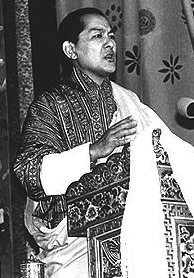 |
|
Foreign
Policy |
 |
 |
| "Never
in this world does hatred cease by hatred, it ceases with love.
This
is the law eternal." |
| His
Majesty Jigme Singye Wangchuck |
The
foreign policy of Bhutan is one based on the principles of peace, prosperity
and friendship with all the nations. His Majesty the King Jigme Singye
Wangchuck describes the country's policy as being threefold:
|
|
"Firstly,
we are committed politically to a strong and loyal sense of nationhood,
to ensuring peace and security of our citizens and the sovereign territorial
integrity of our land. Secondly, to achieve economic self-reliance and
the capacity to begin and complete any project we undertake, and thirdly
to preserve the ancient religious and cultural heritage that has for so
many centuries strengthened and enriched our lives."
Following
a period of self-imposed isolation, Bhutan opened its doors to the outside
world by joining as a member of the Universal Postal Union in 1961 and
became the member of the United Nations in 1971. Bhutan fully subscribes
to the charter of the United Nations and accordingly has continued to play
a committed role in all international affairs.
Bhutan's
international relations have increased both in scope and content. Bhutan
has diplomatic relations with 19 countries, which includes Austria, Bahrain,
Bangladesh, Denmark, Finland, India, Japan, Kuwait, Maldives, Nepal, The
Netherlands, Norway, Pakistan, South Korea, Sri Lanka, Sweden Switzerland,
Thailand and the European Union.
| Bhutan
maintains resident diplomatic missions in New Delhi, Dhaka, Kuwait, Bangkok
and the permanent Missions to the United Nations at New York and Geneva.
The ambassadors of the Kingdom of Bhutan accredited to other countries
are:
Ambassador
in Dhaka - Maldives, Pakistan, South Korea and Sri Lanka
Ambassador
in Delhi - Nepal and Japan
Ambassador
in Geneva - Austria, Denmark, Finland, The Netherlands, Norway, Sweden,
Switzerland and the European Union
Ambassador
in Bangkok - Thailand
Ambassador
in Kuwait - Bahrain |
 Relations
with India Relations
with India |
Bhutan
and India enjoy close ties of friendship and cooperation. While formal
diplomatic ties were established in January 1968, relations between Bhutan
and India took substantive form following the visits by Pandit Jawarharlal
Nehru to Bhutan in 1958 and His Majesty Late Jigme Dorji Wangchuck's visit
to India in 1961. Since then, the spirit of trust and cooperation between
the two countries has been growing. Over the years, they have developed
a mutually beneficial relationship.
A
major step towards this was made when the 336 MW Indo-Bhutan Friendship
Project was commissioned at Chukha. This hydropower-harnessing project
constitutes 30 percent of Bhutan's annual revenue and it's export to India
reached 75.2 percent in 1998. Bhutan also enjoys 90 percent of it's trade
with India and will export more hydropower to India in the coming years.
 SAARC SAARC |
 |
The
Kingdom attaches great importance to SAARC (South Asian Association for
Regional Co-operation). Ever since the inception of SAARC, Bhutan has firmly
supported and promoted the activities, and worked towards making the South
Asian Region self-reliant. Consistent with its policy of developing friendly
relations with all the neighboring countries, SAARC fulfils an important
foreign policy objective of Bhutan. It has also displayed a keen interest
in economic cooperation and various peacemaking efforts in South Asia. |
|



